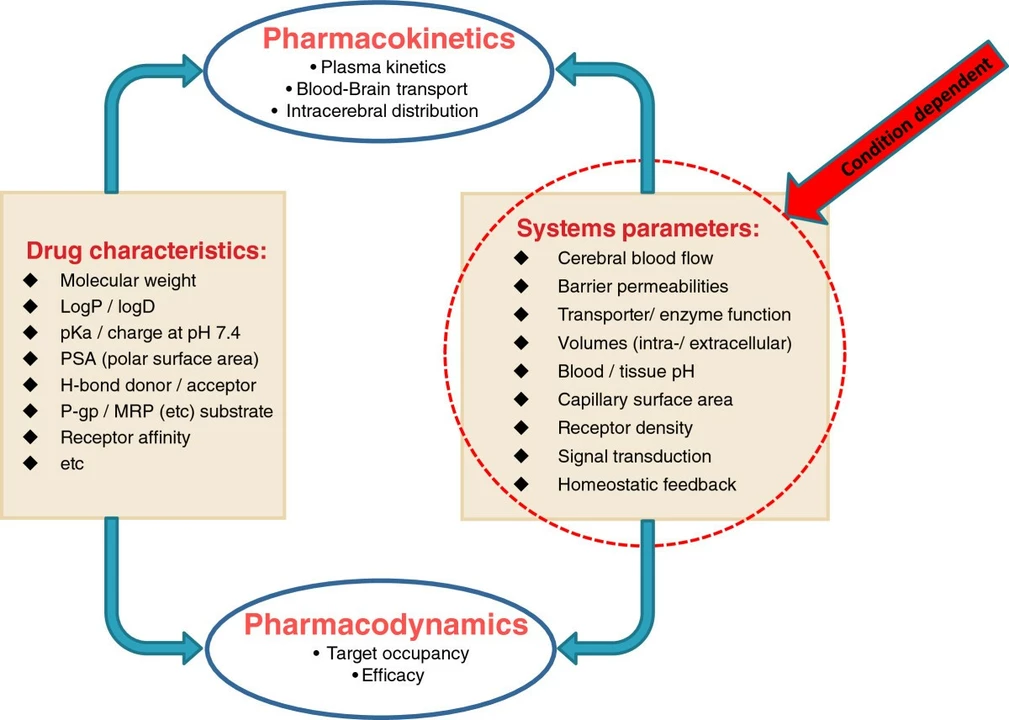Flutamide — a practical look at what it does and why liver checks matter
Flutamide is an oral antiandrogen that blocks testosterone action. Doctors used it often for prostate cancer and sometimes for conditions driven by androgens, but newer drugs have mostly replaced it. The main reason: a real risk of serious liver injury. If you or someone you care for is on flutamide, knowing what to watch for and how treatment is monitored matters more than ever.
How it works and when it's used
Flutamide binds to androgen receptors and prevents testosterone from stimulating cancer cells. For prostate cancer it was used alongside other hormone therapies or when surgery wasn’t an option. Some practitioners have used it off-label for severe hirsutism or hormone-related issues, but that’s uncommon now because there are safer choices.
Treatment plans vary by diagnosis. Doctors pick the drug, dose, and length based on cancer stage, other meds, and patient health. Never start or stop flutamide without medical advice—sudden changes can affect hormone control.
Safety, side effects, and what to monitor
The most important risk is liver toxicity. Patients can develop mild liver enzyme rises or, rarely, severe hepatitis. Before starting flutamide, doctors usually order baseline liver tests and repeat them often during the first few months. Stop and call your provider if you notice jaundice (yellow skin/eyes), dark urine, persistent nausea, stomach pain, or unusual tiredness.
Other common effects include gastrointestinal upset, gynecomastia (breast swelling), reduced libido, and hot flashes. Flutamide can also interact with other drugs that affect the liver—check every prescription and supplement with your clinician or pharmacist.
Pregnancy and breastfeeding: flutamide is not safe for pregnant women and must be avoided if pregnancy is possible. Men on flutamide should also follow guidance about fathering children—ask your doctor for specific advice.
If you’re taking flutamide, expect regular clinic visits for blood work. If liver enzymes spike, your doctor may switch therapy. Bicalutamide and other newer antiandrogens tend to have lower liver risk and are now preferred in many settings.
Shopping for medication online? Be cautious. Buy only from licensed pharmacies that require a prescription. Counterfeit or substandard antiandrogens can be dangerous, especially with a drug that stresses the liver.
Quick practical tips: get baseline LFTs (liver function tests), watch for jaundice or severe nausea, tell every provider about flutamide, and ask about alternatives like bicalutamide. If you notice worrying symptoms, stop the drug only after contacting your healthcare team or following their emergency instructions.
Flutamide can still work for certain patients, but its safety profile demands attention. With the right checks and a clear plan, you can manage risks and get the treatment needed.

The Pharmacokinetics and Pharmacodynamics of Flutamide: What You Need to Know
- 16 Comments
- May, 19 2023
In a recent blog post, I delved into the pharmacokinetics and pharmacodynamics of Flutamide, a medication often used to treat prostate cancer. I explained that Flutamide works by blocking the action of androgens, which helps slow down the growth of cancer cells. We also discussed how the drug is metabolized by the liver and how its elimination half-life is relatively short, which requires frequent dosing. Additionally, I highlighted the importance of monitoring liver function while on this medication due to potential side effects. Overall, understanding the way Flutamide works and how it interacts with our bodies is crucial for patients and healthcare providers alike.




